
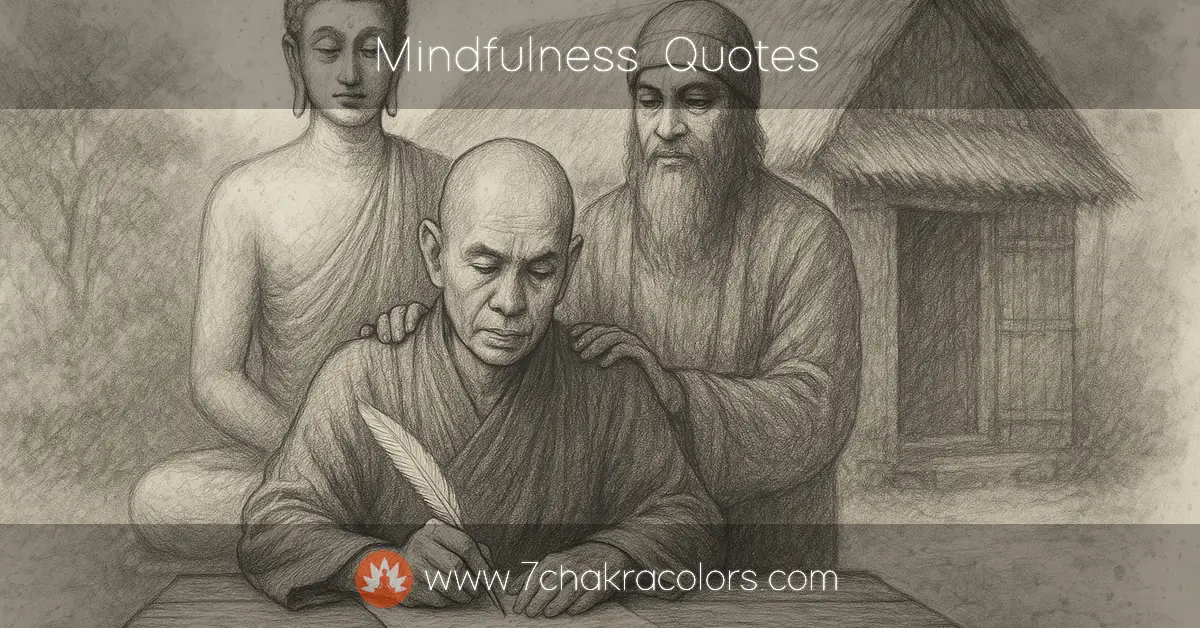
33 Life-changing Mindfulness Quotes from Thich Nhat Hanh, Buddha, Osho & other spiritual teachers. Organized by category with practical wisdom for daily peace.
You know when you’re scrolling on Facebook and some mindfulness quote just stops you dead in your tracks? Everything clicks. You save it to your phone, scribble it on a napkin. You totally get it. For a hot minute, everything feels crystal clear about the direction your life should take.
Cut to two weeks later—you’re lying in bed at some ungodly hour, mindlessly refreshing social media, and that earth-shattering wisdom might as well be from another lifetime.
Does this happen to you? Me too. But it made me think about it.
Here’s what nobody talks about in the mindfulness world: most quotes just bounce right off us. We collect them like spiritual souvenirs, but they don’t actually change how we show up to our lives. The good news is that some quotes do stick—and there’s a pattern to which ones work and why.
I realized that if I want to achieve mindfulness, I have to understand the quotes differently: not as tools but as instructions on how to use the tools. And the main tool in this case is my own mind and consciousness.
I started noticing this about five years ago when I was drowning in my own stress and desperately seeking something that would help. I had this whole Pinterest board of mindfulness quotes. Pretty words everywhere. Meanwhile, I’m losing it with my kids over homework battles, falling down internet rabbit holes until way past midnight, going through the motions like some kind of zombie.
Everything shifted when I quit hoarding quotes like some spiritual magpie and actually started living with them. Not just reading them—really sitting with them, testing them out, seeing which ones changed something in my actual experience.
Time for some uncomfortable truth-telling about something the wellness crowd would rather not discuss: this stuff usually doesn’t stick. People post mindfulness quotes constantly, retweet profound insights, fill their feeds with wisdom, and remain just as frazzled as before.
The problem isn’t the quotes themselves. Some of this wisdom has been around for thousands of years for good reason. The problem is how we engage with them.
We treat quotes like motivation hits—quick fixes that make us feel better for about thirty seconds. But real mindfulness isn’t about feeling good. It’s about developing a completely different relationship with whatever you’re feeling.
Most people approach mindfulness quotes like they’re shopping for the perfect life philosophy. They read dozens, looking for the one that will finally make everything click. But wisdom doesn’t work that way. Thinking your way to presence is like trying to swim your way to dry land.
I knew this woman who had memorized half of Thich Nhat Hanh’s books. Could drop wisdom at dinner parties that would make everyone go quiet. But watching her live day-to-day? Anxiety is through the roof. All those beautiful teachings floating around in her brain, never touching her actual experience.
After years of experimenting with this stuff—both personally and watching others—I’ve figured out which quotes have real staying power. They share some common characteristics.
First, they point you toward right now instead of some future version of yourself. Second, they’re simple enough to remember when you’re actually stressed (not just when you’re feeling zen). Most importantly, they hand you something to actually do instead of just feeding you pretty thoughts to think about.
These are the ones that have actually changed things for real people in real situations—myself included.
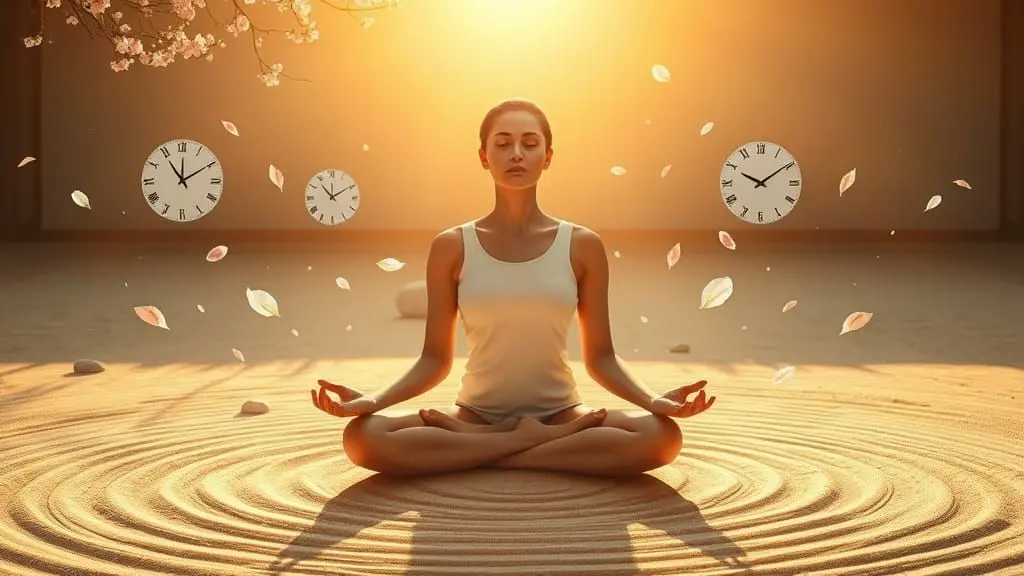
For when you’re lost in past regrets or future worries
This one slaps me back to reality whenever I’m catastrophizing about things completely outside my control, which is basically daily, if I’m being honest.
The guy dedicated his whole life to grasping something most of us resist: our only actual influence is in this exact moment. Not fixing yesterday’s screw-ups or orchestrating tomorrow’s outcomes. Just this.
This is a classic. Looks easy, but it takes constant self-observation to master it. Spend five minutes trying it and you’ll discover how often you’re everywhere except where you actually are. I tested this one afternoon during a conversation with my daughter. Instead of planning my response or thinking about dinner, I just… listened. Really listened.
The difference was startling. She relaxed. I relaxed. The whole quality of our connection shifted.
Total anxiety antidote. When my mind starts projecting fears and worries about the future, this quote is the one that yanks me back to reality. Whatever disaster I’m imagining can happen in the future is just my own projection. The things I can control depend entirely on how I handle what’s actually happening right now. And the things I can’t are simply not meant to be controlled by me.
Similar to other quotes we’ve had, but said a bit differently – helps you understand it from a different angle. How many of your life moments have you missed because your head was somewhere else? All those times you were half-listening while thinking about the work you have to do. All those gorgeous sunsets you missed because you were staring at your phone, taking pictures of it.
This isn’t toxic positivity BS. He’s not saying everything’s wonderful all the time. He’s saying that even when stuff is hard, there’s usually something beautiful happening if you’re actually looking. The way morning light hits your coffee cup. The fact that your heart keeps beating without you having to think about it. How that cashier smiled at you for no particular reason.
Not better in the present moment. Available. Life isn’t something that happened before or something that’ll happen later. It’s right here, right now, and if you’re not paying attention, you’re missing your actual life.
I know it’s corny, but corny sometimes works. When my mind gets stuck spinning about regrets or worries, this brings me back to the fact that right now is the only place where anything’s actually happening.
The past is just memories floating around in your head. The future is basically just imagination. This moment? This is where you actually get to influence anything.
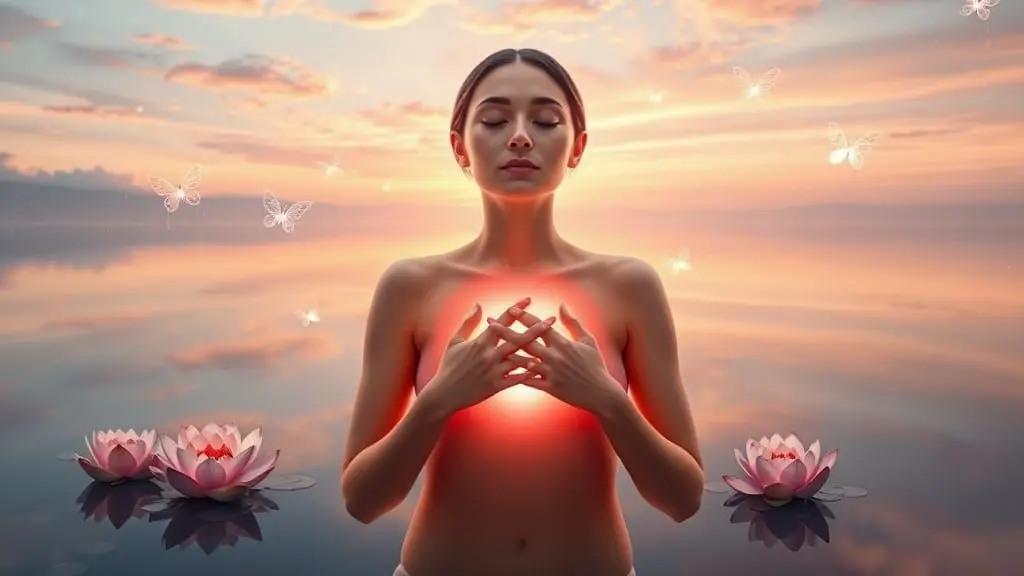
For when you’re being hard on yourself or seeking external validation
I fought this one for years. Surely peace would come when I got the right job, the right relationship, the right whatever. But every time I achieved something I thought would bring peace, there was just… more wanting. I’m sure you know how this works.
Everything external keeps changing constantly. Everything passes, good and bad. But your ability to stay grounded doesn’t have to get disturbed by every change or shift in circumstances. The more you are aware and present in your inner world, the less effect the outer world will have on your inner peace.
This totally changed everything for me. I’d been treating mindfulness like another optimization hack, just one more item on my endless personal development to-do list. But what if it’s not about becoming some upgraded version of yourself? What if it’s just treating who you already are with some basic kindness?
Wish I’d figured this out years ago. Most of us have been using self-criticism as our main motivational strategy for basically our whole lives. What if being kind to yourself actually works better?
The Dalai Lama, who’s been through incredible highs and devastating lows, understands that happiness isn’t something that happens to you. It’s something you build through how you choose to handle whatever life throws at you.
This teacher from Thailand figured out how exhausting it gets when you’re constantly putting on an act. Mindfulness shows you who you really are underneath all the pretending, and that recognition brings this surprising sense of relief.
This one’s pretty confronting. It’s suggesting that a lot of times, we’re the ones keeping our pain alive by holding onto painful thoughts or situations. Mindfulness helps you catch yourself in the act of gripping onto suffering.
You can’t outrun yourself by switching locations. I learned this the hard way after moving across the country, thinking geography would solve my problems. Plot twist: it absolutely didn’t work.
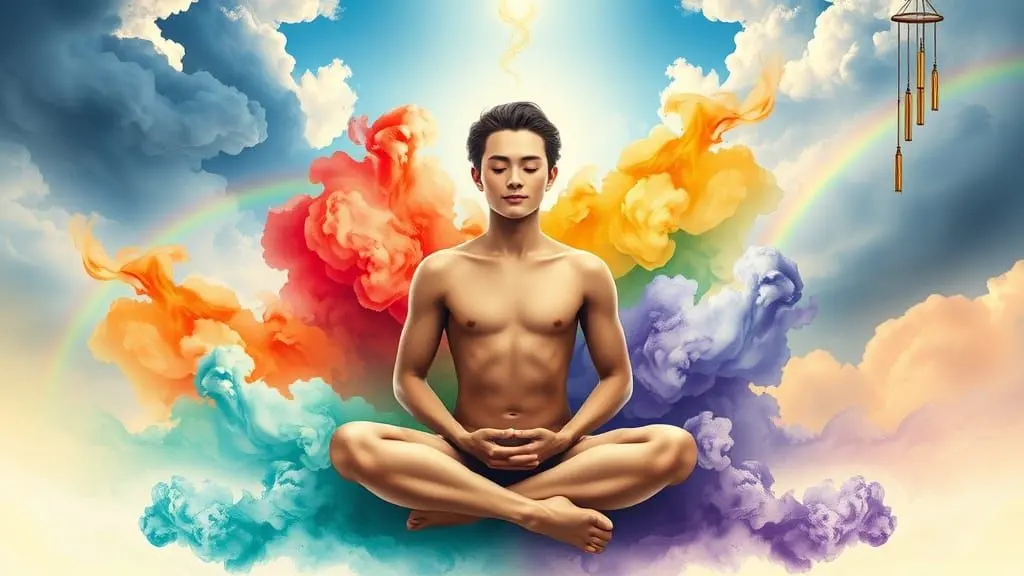
For when you’re overwhelmed by feelings or stress
Very practical and a complete game-changer. This taught me to stop treating difficult emotions like natural disasters. They’re just like passing storm fronts—they roll in, do their thing, then roll out. Do not attach. Close your eyes, listen, feel, and just breathe for a moment. Accept the feelings and gently breathe them out.
Five words that contain an entire practice. I have this written on a sticky note by my computer. When everything feels urgent and overwhelming, I read it and actually do it. Smile (even forced ones shift your nervous system). Take conscious breaths. Move deliberately.
Never fails.
This isn’t woo-woo magic—it’s recognizing how your mental loops shape what you experience. When you catch yourself in habitual thought patterns, you can actually pick different ones. Not always, but way more than you’d think.
This totally blew my mind when I first encountered it. Moving from stress-brain to mindful awareness doesn’t just feel different—it actually changes what’s happening in your body on a biological level.
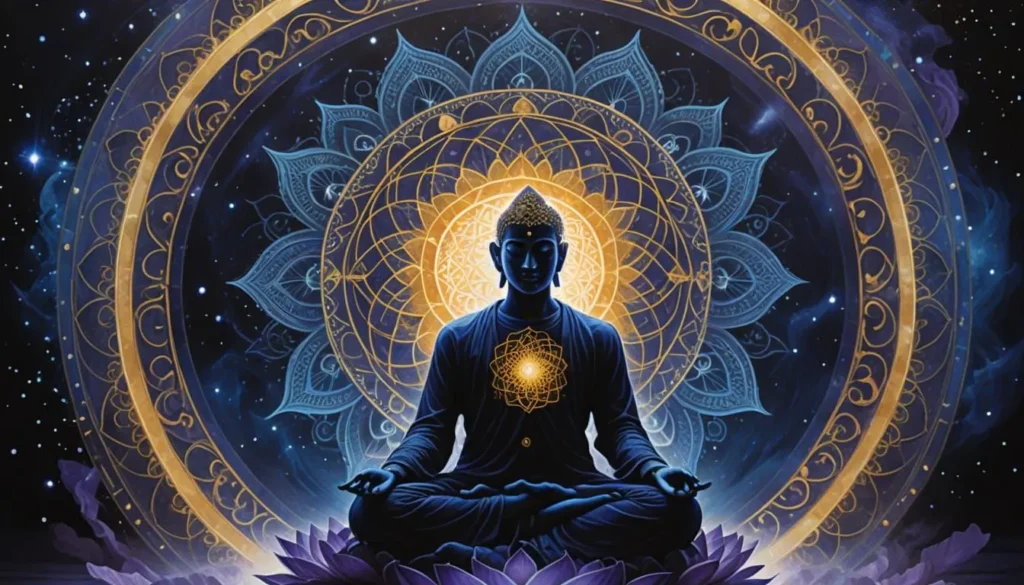
For when you need to snap out of autopilot mode
Jon’s not talking about anything overly mystical here. He means awake to your actual life—the boring parts, the difficult parts, the ordinary Tuesday afternoon parts. Not the life you think you should be living, but the one that’s actually happening.
This one broke me out of constantly waiting for my “real” life to start once I finally had everything figured out.
Sharon cracked the code here. It’s not about becoming some mindfulness ninja. The tricky part is remembering to wake up from zombie mode. Everything else is just practice.
When people write off mindfulness as avoiding reality, this quote sets the record straight. You’re not trying to escape what’s happening—you’re learning to deal with it without completely falling apart.
Simple and direct. Most of us assume we know our own minds, but we’re basically sleepwalking through our thoughts. Just sitting quietly and watching what your brain does—without trying to fix or change anything—shows you stuff you never noticed.
This sounds contradictory, but it’s actually perfect advice. Yeah, you need some effort to remember to be present, but it should feel like a gentle nudge, not forcing yourself into some rigid state.
True mindfulness isn’t some dreamy, checked-out state. It’s more like being simultaneously relaxed and completely tuned in—peaceful but totally alive to whatever’s happening around you.
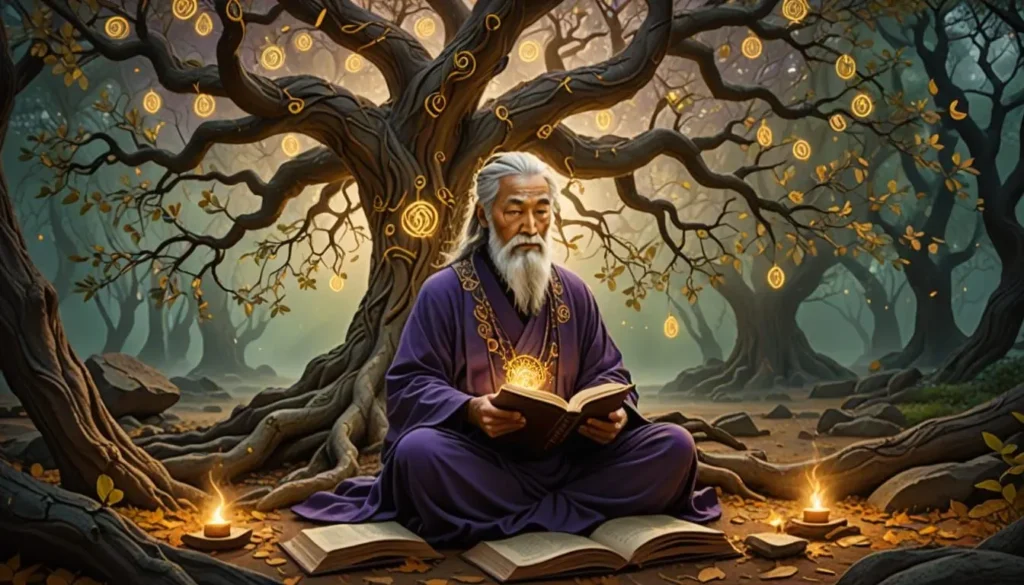
For when you need perspective on what really matters
The actual substance of your life isn’t happening during milestone moments. It’s happening while you’re making coffee, washing the dishes, or standing in the grocery checkout line. Those aren’t filler moments between the real stuff—they are the real stuff. How you perceive them is how you live them.
Kornfield boils down an entire spiritual path into three practices. Living well requires presence. Loving well needs an open heart. Letting go requires accepting that nothing stays the same forever. Everything else? Just noise.
Buddha was essentially saying: test this stuff yourself. Don’t take my word for any of this stuff. Test it in your own life. See what happens when you actually practice presence versus when you don’t.
James figured this out more than a hundred years ago. You have way more influence over your experience than you realize. Not by trying to control what happens, but by changing how you respond to whatever shows up.
Describing it as an art implies that it requires practice and skill development. You won’t become a presence master overnight. But like any art form, just doing it becomes rewarding.
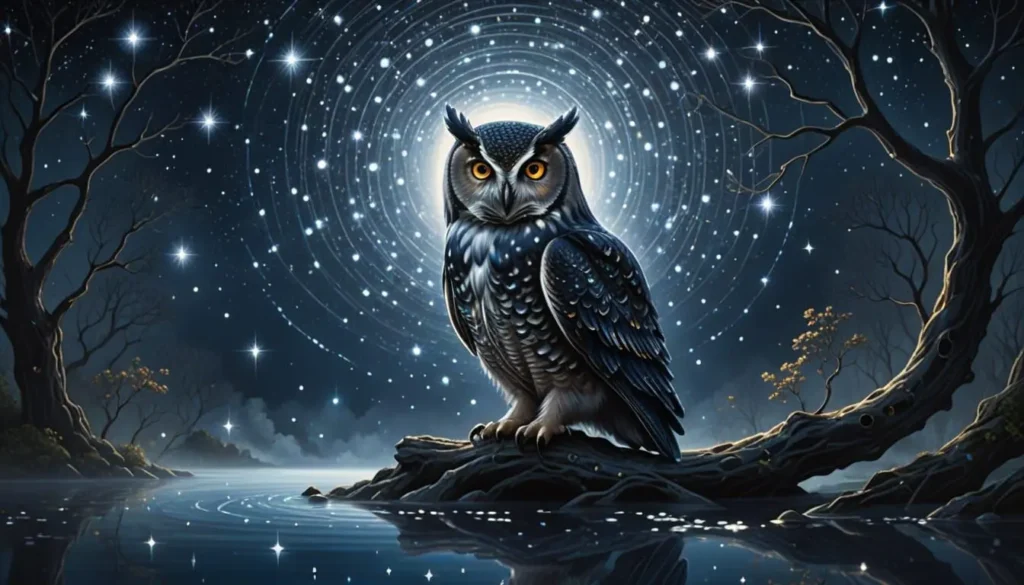
For when you need to quiet the noise and listen within
This medieval monk figured out something we’re still learning: taking time to reflect actually changes how you act. Create some quiet space for awareness, and your decisions start getting more thoughtful and intentional.
In our constantly buzzing world, this feels almost radical. Below all the mental noise, there’s usually some part of you that has a pretty good sense of what to do next. You just need to get quiet enough to listen.
When you’re really present with someone—actually listening instead of mentally rehearsing your next comment—you’re giving them something way more valuable than advice or solutions. You’re showing them what it feels like to be truly seen.
Here’s where most people go wrong: they treat quotes like collectibles instead of tools.
Real integration happens when you pick one quote that resonates and actually experiment with living it. Not all of them. One.
I worked with just “Wherever you are, be there totally” for half a year. Whenever I caught my mind wandering during conversations, I’d think that phrase. Whenever I was sitting in one place but mentally somewhere totally different, Tolle’s words would snap me back to where I actually was.
The approach isn’t rocket science. Find a quote that punches you in the gut. Put it somewhere you can’t avoid seeing it. When life inevitably gets messy, use that quote as a compass to see if it points you toward anything helpful in that particular moment.
Don’t shoot for perfection. Aim for remembering when you’ve forgotten, then gently finding your way back.
Explore our comprehensive table of 33 powerful mindfulness quotes organized by category and author. This reference guide helps you quickly find the perfect quote for your current situation, whether you need present moment awareness, emotional balance, or deeper spiritual insight. Each quote has been carefully categorized to help you navigate different aspects of mindful living.
| QUOTE | AUTHOR | CATEGORY |
|---|---|---|
| “The present moment is the only time over which we have dominion.” | Thich Nhat Hanh | Present Moment Mastery |
| “Wherever you are, be there totally.” | Eckhart Tolle | Present Moment Mastery |
| “The best way to take care of the future is to take care of the present moment.” | Thich Nhat Hanh | Present Moment Mastery |
| “Be where you are; otherwise you will miss your life.” | Buddha | Present Moment Mastery |
| “The present moment is filled with joy and happiness. If you are attentive, you will see it.” | Thich Nhat Hanh | Present Moment Mastery |
| “Life is available only in the present moment.” | Thich Nhat Hanh | Present Moment Mastery |
| “Yesterday is history, tomorrow is a mystery, today is a gift, which is why we call it the present.” | Bill Keane | Present Moment Mastery |
| “The only moment we ever really have is now.” | Marianne Williamson | Present Moment Mastery |
| “Peace comes from within. Do not seek it without.” | Buddha | Inner Peace & Self-Compassion |
| “Mindfulness is a way of befriending ourselves.” | Jon Kabat-Zinn | Inner Peace & Self-Compassion |
| “You have been critical of yourself for years, and it hasn’t worked. Try approving of yourself and see what happens.” | Louise Hay | Inner Peace & Self-Compassion |
| “Happiness is not something ready made. It comes from your own actions.” | Dalai Lama | Inner Peace & Self-Compassion |
| “Be yourself and you will be peaceful.” | Ajahn Chah | Inner Peace & Self-Compassion |
| “Suffering is not holding you. You are holding suffering.” | Osho | Inner Peace & Self-Compassion |
| “Wherever you go, there you are.” | Jon Kabat-Zinn | Inner Peace & Self-Compassion |
| “Feelings come and go like clouds in a windy sky. Conscious breathing is my anchor.” | Thich Nhat Hanh | Understanding & Managing Emotions |
| “Smile, breathe, and go slowly.” | Thich Nhat Hanh | Understanding & Managing Emotions |
| “The mind is everything. What you think you become.” | Buddha | Understanding & Managing Emotions |
| “The moment you change your perception is the moment you rewrite the chemistry of your body.” | Dr. Bruce Lipton | Understanding & Managing Emotions |
| “Mindfulness is about being fully awake in our lives.” | Jon Kabat-Zinn | Awakening & Awareness |
| “Mindfulness isn’t difficult, we just need to remember to do it.” | Sharon Salzberg | Awakening & Awareness |
| “Meditation is not evasion; it is a serene encounter with reality.” | Thich Nhat Hanh | Awakening & Awareness |
| “If you want to know your mind, sit down and observe it.” | Anaïs Nin | Awakening & Awareness |
| “The best meditation is effortless. The best meditation is a gentle, gentle effort.” | Ajahn Chah | Awakening & Awareness |
| “In mindfulness one is not only restful and happy, but alert and awake.” | Thich Nhat Hanh | Awakening & Awareness |
| “The little things? The little moments? They aren’t little.” | Jon Kabat-Zinn | Life Philosophy & Wisdom |
| “In the end, just three things matter: How well we have lived, how well we have loved, how well we have learned to let go.” | Jack Kornfield | Life Philosophy & Wisdom |
| “Do not believe in anything simply because you have heard it. But after observation and analysis, when you find that anything agrees with reason and is conducive to the good and benefit of one and all, then accept it and live up to it.” | Buddha | Life Philosophy & Wisdom |
| “The greatest revolution of our generation is the discovery that human beings, by changing the inner attitudes of their minds, can change the outer aspects of their lives.” | William James | Life Philosophy & Wisdom |
| “The art of living lies in being deeply present to what is happening now.” | Unknown | Life Philosophy & Wisdom |
| “What we plant in the soil of contemplation, we shall reap in the harvest of action.” | Meister Eckhart | Inner Wisdom & Intuition |
| “The quieter you become, the more able you are to hear.” | Rumi | Inner Wisdom & Intuition |
| “The most precious gift we can offer others is our presence.” | Thich Nhat Hanh | Inner Wisdom & Intuition |
Reading quotes feels good. Applying them changes your life. There’s a massive difference.
Start small. Pick one quote from this list that stopped you in your tracks. Stick it somewhere you can’t miss it—mirror in your bathroom, coffee mug you use every morning, phone background.
Then comes the harder part: noticing when you’ve completely forgotten about it and finding your way back to those words.
I’ve been messing around with this for years, and I’m still shocked by how often I need these reminders. My attention still drifts during conversations. I still spiral into worry about stuff that hasn’t happened yet. I still talk to myself way harsher than I’d ever talk to a friend.
But these quotes have turned into reliable allies, sitting there quietly until I remember to lean on them. They don’t fix everything magically, but they help me find my way back to some kind of sanity when I’ve wandered off into stress and reactivity.
The point isn’t becoming some zen master who never loses it. It’s developing this habit of waking up from autopilot and showing up to life with a bit more awareness and gentleness.
That’s it. That’s the whole thing.
And honestly? That’s enough to change everything.
Understanding the people behind powerful quotes often makes their wisdom hit even deeper. These aren't just pretty words from random internet memes—they come from individuals who lived through real struggles, dedicated their lives to understanding the human condition, and discovered profound truths through their own journeys.
The Vietnamese Zen master who appears most frequently in our collection fled his homeland during the Vietnam War and was exiled for 39 years. He coined the term "engaged Buddhism" and survived an assassination attempt in 1966. Despite facing such turbulence, he became one of the world's most beloved teachers of peace. His simple yet profound teachings came from someone who understood suffering intimately—he once said he learned to smile even while walking through the rubble of bombed villages.
Born in Germany, Tolle spent much of his early life in a state of anxiety and depression so severe he considered suicide. At age 29, he experienced what he calls a "spiritual awakening" that completely transformed his relationship with thought and presence. He spent the next two years sitting on park benches in a state of deep peace, often mistaken for homeless. His book "The Power of Now" was initially rejected by publishers and only became a bestseller after Oprah Winfrey discovered it.
A molecular biologist who founded the Stress Reduction Clinic at the University of Massachusetts Medical Center, Kabat-Zinn brought mindfulness into mainstream medicine. He's the guy who figured out how to teach meditation to skeptical doctors and chronic pain patients. His approach stripped away religious terminology and focused purely on the practical benefits—he literally proved that mindfulness changes brain structure through scientific research.
The prince who gave up his palace, wealth, and royal title to sit under a tree and figure out why humans suffer. After six years of extreme asceticism (including nearly starving himself to death), he discovered the "middle way"—not too much comfort, not too much deprivation. His teachings have influenced billions of people across 2,500 years, yet he consistently told his followers not to believe anything he said unless they tested it themselves.
A former Buddhist monk who lived in Thai monasteries for years before returning to America to become a clinical psychologist. He's one of the key figures who brought Eastern wisdom to Western psychology. What makes him unique is his ability to blend deep spiritual insight with practical therapeutic techniques—he understands both the monastery and the therapist's office.
At age 18, Salzberg was dealing with a chaotic family life (her mother committed suicide when she was 16) when she discovered meditation during her first year of college. She spent years studying in India and Burma, often as one of the few Western women in male-dominated monasteries. She co-founded the Insight Meditation Society and has spent decades making meditation accessible to people dealing with real-world problems.
A German Dominican priest and mystic who was so far ahead of his time that the Catholic Church put him on trial for heresy. His teachings about finding God within oneself were considered dangerous by medieval religious authorities. Despite living 700 years ago, his insights about consciousness and presence sound remarkably modern—he basically discovered mindfulness before it had a name.
Started her career as a fashion model in New York, then became a Science of Mind minister after experiencing childhood abuse and trauma. She was diagnosed with cervical cancer in the 1970s and refused conventional treatment, instead healing herself through nutrition, therapy, and positive thinking. Her book "You Can Heal Your Life" has sold over 50 million copies worldwide and launched the entire self-help movement.
A Persian poet who was actually a conventional Islamic scholar until he met a wandering mystic named Shams at age 37. This encounter transformed him so completely that he began writing ecstatic poetry about love and spiritual awakening. His friendship with Shams was so intense that when Shams mysteriously disappeared (possibly murdered by Rumi's jealous students), Rumi spent the rest of his life channeling his grief into some of the most beautiful mystical poetry ever written.
Recognized as the reincarnation of the 13th Dalai Lama when he was just two years old, he's been in exile from Tibet since 1959 when the Chinese invasion forced him to flee. Despite losing his homeland and watching his people suffer under occupation, he remains one of the world's most joyful and optimistic spiritual leaders. He often says his greatest teachers have been his enemies because they taught him patience and compassion.
A cellular biologist who spent decades studying how cells respond to their environment. His research led him to discover that genes don't control biology—perception does. This finding was so revolutionary that it challenged the entire field of genetics. He left his academic career to share his discoveries about how our thoughts literally reshape our biology, bridging the gap between science and spirituality.
The cartoonist behind "The Family Circus" comic strip, which ran for over 50 years. Though he's known for wholesome family humor, his most famous quote about the present being a gift came from his deep understanding of family life and finding meaning in everyday moments. He drew inspiration from his own five children and created a comic that celebrated the simple wisdom found in ordinary family experiences.
A Thai Buddhist monk who became one of the most beloved meditation teachers of the 20th century, despite (or perhaps because of) his unconventional teaching methods. He was known for his humor, practical wisdom, and ability to communicate complex spiritual concepts through simple analogies. He spent his final 10 years in silence due to a degenerative brain condition, yet continued teaching through his peaceful presence alone.
A spiritual teacher and author who brought "A Course in Miracles" to mainstream audiences. She's worked extensively with AIDS patients, addiction recovery, and social justice issues. What makes her unique is her ability to blend spiritual principles with practical activism—she's run for political office and founded several charitable organizations, proving that spiritual practice can be deeply engaged with the world's problems.
Perhaps the most controversial figure on this list, Osho was an Indian mystic who challenged virtually every religious and social convention. His ashram in Oregon in the 1980s became infamous for scandals, but his teachings on consciousness, meditation, and human potential continue to influence millions. He had a unique ability to see through psychological patterns and offered radical perspectives on freedom and authenticity.
A French-American writer best known for her detailed personal diaries, which she kept for over 60 years. Her journals provide an intimate look at the inner life of a creative woman navigating relationships, creativity, and self-discovery. She was decades ahead of her time in exploring female sexuality and psychology, and her insights into self-observation came from a lifetime of honest self-examination.
These aren't just random quote generators—they're individuals who lived through real challenges, dedicated their lives to understanding consciousness and human potential, and discovered profound truths through their own direct experience. Their words carry weight because they emerged from genuine wisdom earned through living, not just thinking.